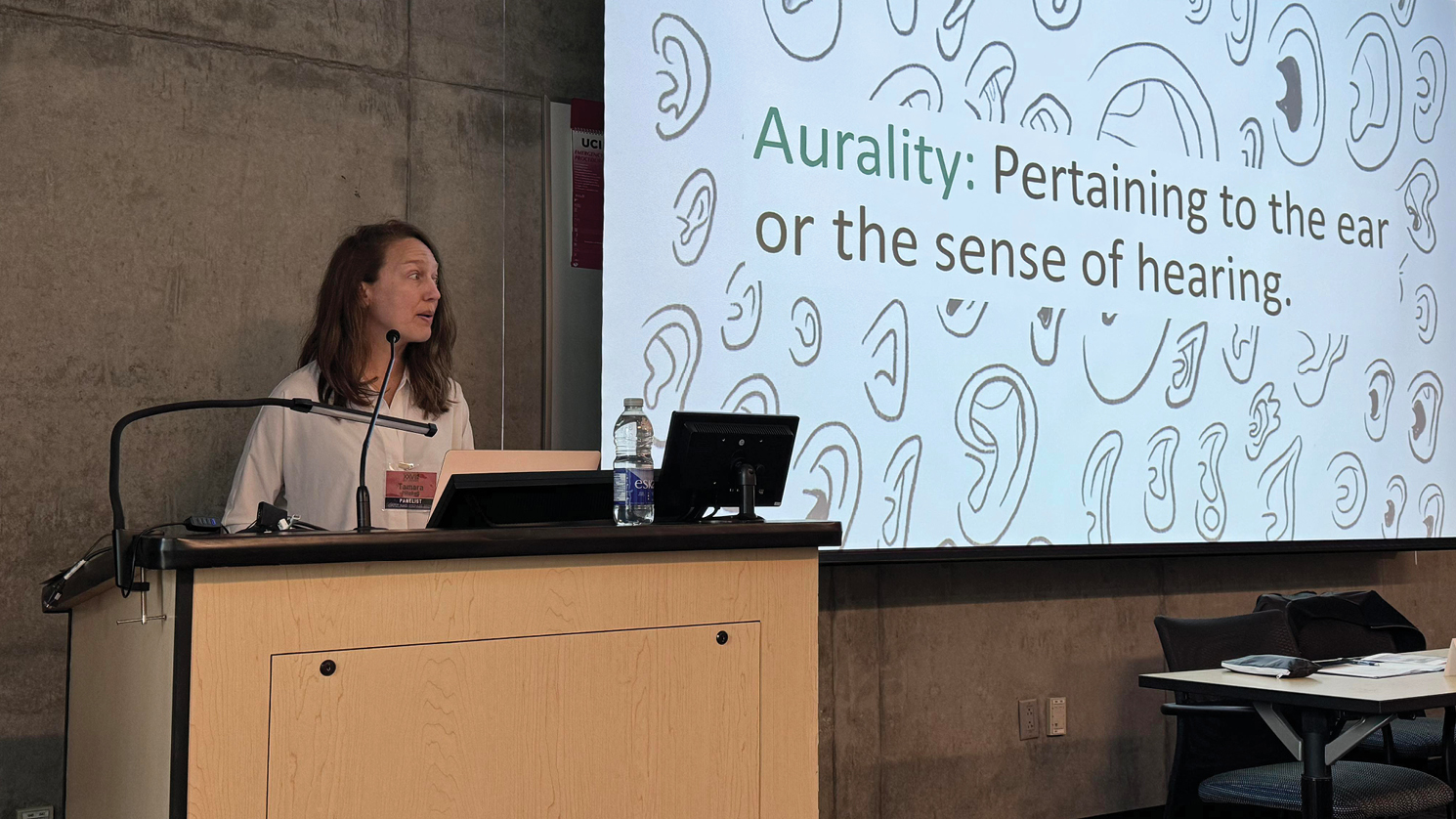

“Sounds of the Capitalocene examines recent Mexican novels that persistently turn to listening and sound as a means of interrogating the effects of extractivist practices associated with advanced capitalism.”
Congratulations to Dr. Tamara Mitchell, Assistant Professor of Spanish, for receiving a SSHRC Insight Grant for her research project titled Sounds of the Capitalocene: Extraction and Aurality in Mexican Literature.
About the research project:
What does it mean for a novel to be sonorous? How might we attune to sound or silence, rhythm or timbre, a clap of thunder or the trill of birdsong in prose? What is at stake when narrative perks up our ears, obliging us to not only read literature, but to hear it from a listening positionality? In what ways might textual resonances and vibrations in a work of fiction generate creative, contestatory, and ethical potential against extractivism and profiteering?
These are some of the questions that animate Sounds of the Capitalocene: Extraction and Aurality in Mexican Literature, a five-year project that will fund the composition of a monograph. Situated at the intersection of sound studies, literary studies, and ecocriticism, Sounds of the Capitalocene examines recent Mexican novels that persistently turn to listening and sound as a means of interrogating the effects of extractivist practices associated with advanced capitalism. Considering Mexican fiction published from the so-called “lost decade” of the 1980s to the present, Mitchell attunes to a range of acoustic elements in prose to argue that bringing a listening practice to our reading of contemporary fiction can expand our understanding of the profound impacts of capitalist logic on human relations and the more-than-human world.


Dr. Mitchell attended the 2024 Juan Bruce-Novoa Mexican Studies Conference at the University of California Irvine to present research on auscultation as a mechanism for perceiving gender violence in Guadalupe Nettel's fiction.
Mexico is uniquely positioned in global politics, economics, and culture. The fulcrum between Latin and North America, Mexico has served as both buffer to and trafficker of the capitalist aspirations of the United States, since early industrialization and into the neoliberal present. In recent years, the country’s geopolitical location just south of the militarized US border means that it is the receiving country of unprecedented migrant flows due to sociopolitical instability; natural disasters and climate change; and economic migration, among other push factors that can be traced back to capitalist logic. Cultural and literary production arising out of Mexico has long sought to account for and address such dynamics, and Mitchell’s Insight research will track and analyze how and to what effect recent Mexican fiction wields audition and the sonic in its portrayal of these social, environmental, and political realities. In dialogue with environmental scholars and political philosophers, Mitchell understands these dynamics as effects of the Capitalocene.
Environmental historian Jason W. Moore describes the Capitalocene as “a system of power, profit and re/production in the web of life” (594); “the ‘age of capital’—the historical era shaped by the endless accumulation of capital” (596). The effects of the Capitalocene are wide-ranging, including environmental catastrophes such as the acidification of the ocean, extreme weather, environmental degradation, and deforestation, among others, but capitalist reason also produces and exacerbates crises such as forced migration, increased economic inequality, and gender violence. Sounds of the Capitalocene proposes to analyze works that mobilize aurality, both formally and thematically, as a means of portraying and contesting the disparate social and environmental devastation stemming from the extractivist practices of advanced capitalism.
Aurality is that which relates to our sense of hearing and the perceptive capacities of the ear, and Mitchell proposes the term “narrative aurality” to account for the substantive presence, both formal and thematic, of sound and listening in a work of literature. Observing that 20th- and 21st-century Mexican authors are turning to narrative aurality as a generative means of critiquing and responding to exclusionary politics, economic inequalities, and ecological devastation that arise from the logics of the Capitalocene, Mitchell’s Insight research will examine aural phenomena and formal devices such as acousmatic sound (sound out of sight to the listener), auscultation (the sound of space), impaired hearing and speaking, vocal prostheses, and intermediality, among others. Sound—in the form of, for instance, oral culture and knowledge systems, local music and rhythms, or testimonio literature—has long been a tool for contesting colonial and authoritarian regimes in Latin America. Sounds of the Capitalocene proposes that recent Mexican literature brings that potentiality into the extractivist present, inviting the listener-reader to perceive differently, to listen for resonances and hone new forms of attention against the violence of the Capitalocene.


